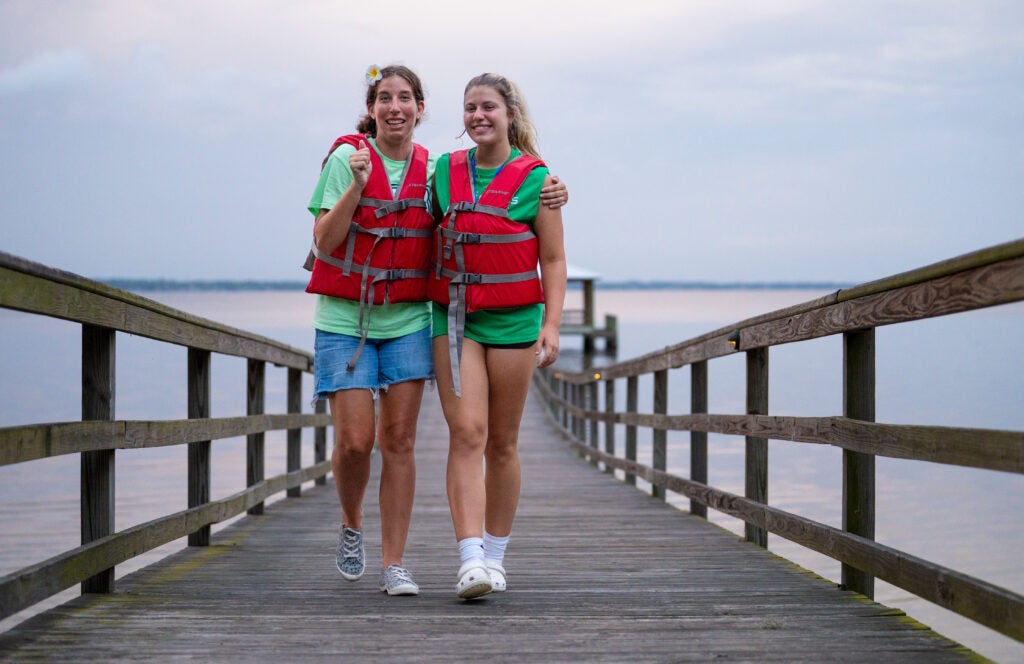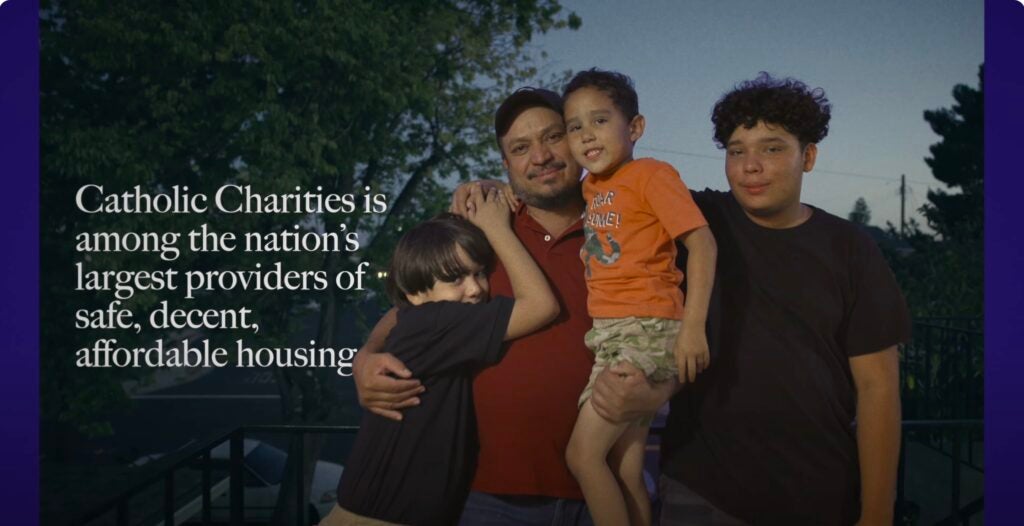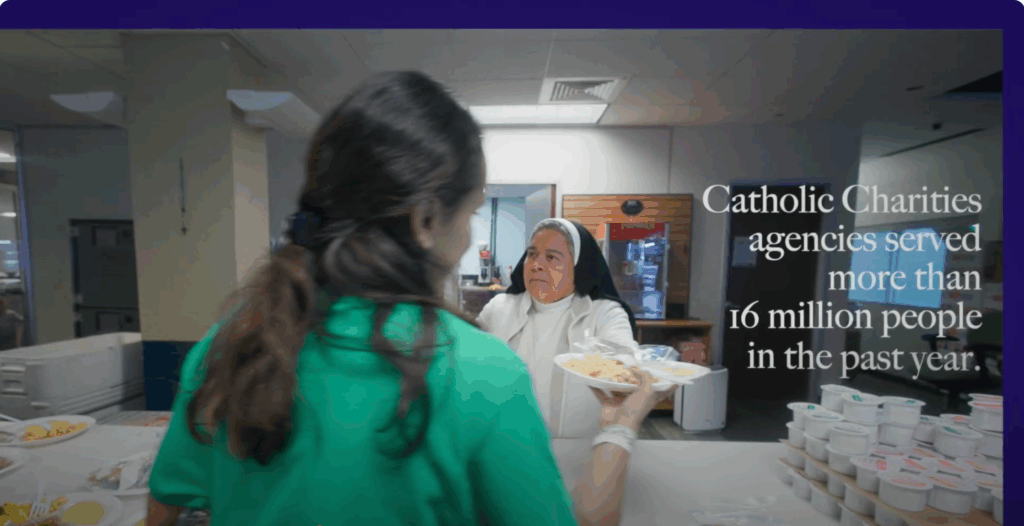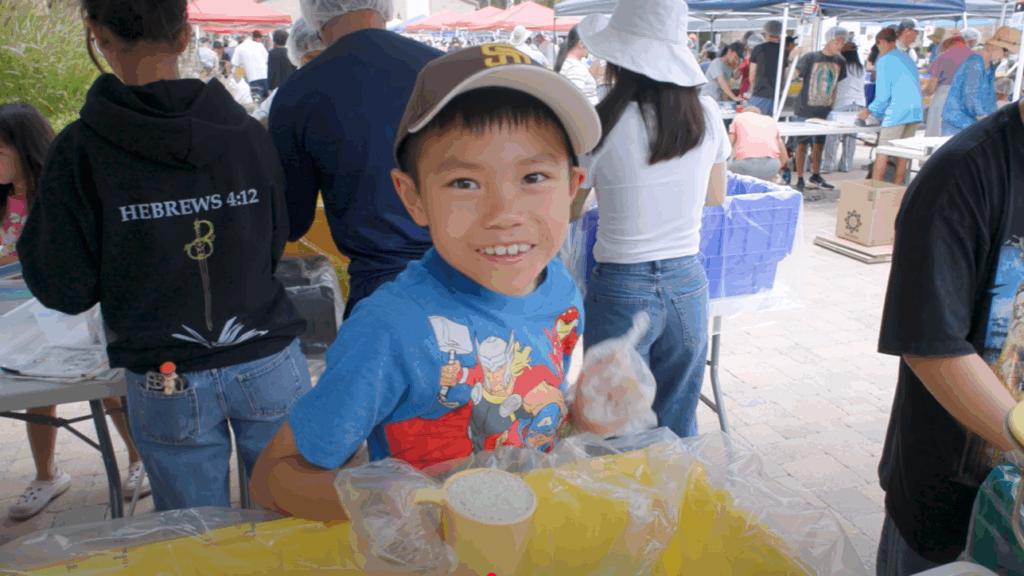
Protecting the dignity of human life in the face of COVID-19
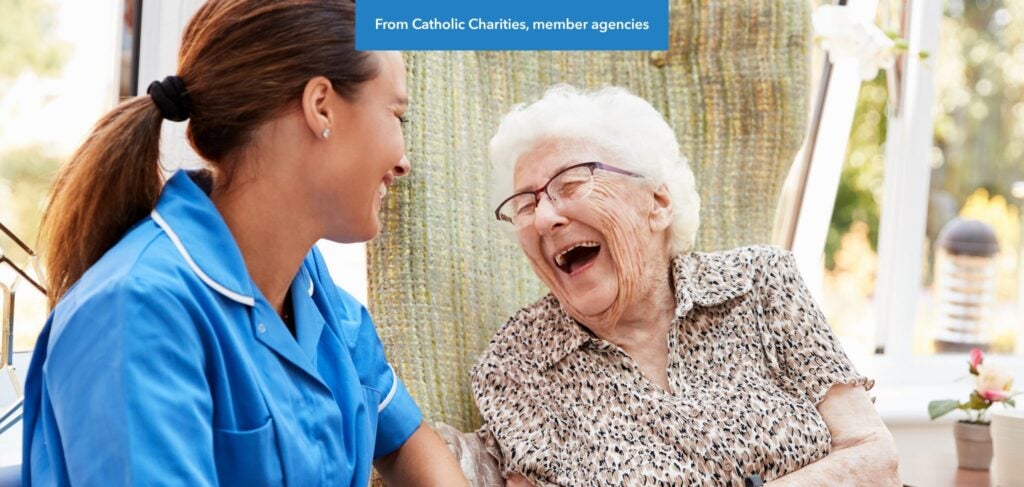
By Tom Blonski, President and CEO of Catholic Charities New Hampshire
Spending a Tuesday night painstakingly negotiating with vendors to secure several thousand pieces of personal protective equipment (PPE) for our skilled nursing facilities after the last order was waylaid somewhere in the Far East… Witnessing the tsunami of emotions facing our residents, staff and family members, while doing our best to remain calm, collected and reassuring… This is the “new norm” at Catholic Charities New Hampshire as we navigate this unprecedented time – and our mission of protecting the poor and vulnerable is being tested like never before.
In addition to our various social services programs that disrupt the cycle of poverty and strengthen families – each having their own dynamic response to the pandemic – we’re one of a handful of Catholic Charities agencies that operate skilled nursing facilities. We have seven in total, serving nearly 1,000 seniors each year, with more than 850 staff.
Our residents are spouses, parents and grandparents. Each is a cherished member of our family. We learn from them, smile because of them and are privileged to be able to care for them. And now, we’re doing all we can to protect them from this invisible enemy in COVID-19.
The steps we’ve taken may seem extreme but are necessary. In consonance with CDC protocol(s), we implemented rigid infection control guidelines. We prohibited all visitations until opening up (outdoor) family visits recently. Community gatherings (meals, special events, etc.) were suspended. Staff and residents are regularly tested and screened for the virus. Universal masking (and donning of full PPE when needed) was implemented. In the event that residents test positive, we constructed temporary isolation units. The list goes on.
While these actions have proven to be effective, we’re surrounded by the constant reminder that you don’t have full control over the situation, especially after employees leave work. You could be doing everything right, and the virus still enters your facility (as it has with one of ours). The risk is with us every day.
Our employees are true heroes, literally risking their health/lives to care for our residents. Some could have decided it was too much, opting for more pay through unemployment, but they didn’t. Their commitment to our residents and fellow staff is remarkable.
We’re fortunate to have secured sufficient amounts of PPE, and unlike other nursing homes, our staff don’t have to reuse PPE for multiple days. Initially, we had three people working almost fulltime to eliminate having to reuse PPE. In a market filled with confiscations, price gouging and counterfeiting, you have to be extra vigilant to ensure that you have adequate access to the right quantity and quality of PPE – at a fair price. Thankfully, it paid off for us.
Our residents are understandably anxious and feeling more isolated by the day. We’re doing our best to focus on the positives. We purchased tablets so residents could have “virtual visits” with loved ones, family members are doing “window” and outside visits, and we even had special car parades to commemorate occasions like Mother’s Day, Easter and Father’s Day.
We also contend with daily negative press and “nursing home bashing,” including the belief that loss of life in facilities like ours is less important than getting the economy back on track. It’s not an either/or predicament! To cast human beings aside as if they were “expired goods” is disheartening and sickening. Before judging, others should seek first to understand.
Operationally, we’re anticipating at least a $1 million loss this year due to continued underfunding from Medicaid, unexpected costs related to PPE, lower census, and paying more for outside agency personnel to fill staffing vacancies. But this is all secondary to what matters most.
In Ron Rolheiser’s book, The Restless Heart, he states, “Evolution works through this principle: The survival of the fittest…However, one of the essential elements of Christian discipleship demands that we work for a different principle: The survival of the weakest and the gentlest.” This is what drives us.
In times of crisis, the dignity and sanctity of human life are not to be sacrificed. In fact, they are to be bolstered and uplifted. We remain driven by the belief that every person we encounter is sacred and has worth, especially our seniors. They are our most vulnerable citizens and the foundation of who we are as human beings. They deserve nothing less.
And although the unknowns of tomorrow persist, we are confident that our faith, diligence and God’s hand will carry us as we continue to protect and care for the most vulnerable.
